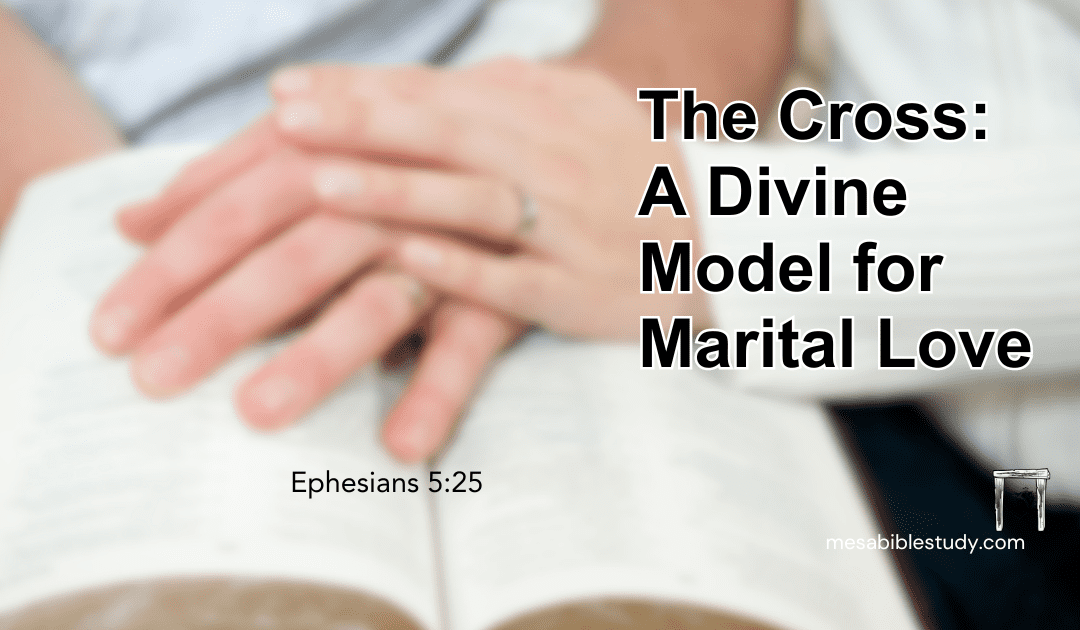
by Jamie Pantastico | Jan 18, 2024 | Daily Encouragement |
In the closing verses of Romans, the Apostle Paul reveals a mystery that sets his gospel apart from the message proclaimed by Peter and the eleven. Romans 16:25 boldly declares,
“Now to Him who is able to establish you according to my gospel and the preaching of Jesus Christ, according to the revelation of the mystery kept secret since the world began.”
The critical phrase “kept secret” (mystērion) explicitly conveys that Paul’s revelation was unprecedented. This new message, revealed to Paul alone by the ascended, glorified Lord Jesus, emphasizes salvation through faith alone in the completed work of the cross, detached from the requirements of the law and temple rituals.
This once-hidden mystery revolves around the inclusion of the Gentiles in God’s grand redemptive plan (Ephesians 3:1–11).
Romans 16:25 asserts that Paul’s gospel is a new revelation, primarily intended for the Gentiles. Chosen by God as the apostle to the Gentiles (Romans 11:13), Paul brought forth a message that the Gentile (or Israel) world had never known before—no gospel, no good news; they were without God (Ephesians 2:11–12). But now, because of Israel’s unbelief, God, committing all of Israel to disobedience (Romans 11:32) and temporarily blinding them (Romans 11:25), turned His focus to the Gentiles with the gospel revealed uniquely to Paul—the gospel of the grace of God (Acts 20:24; 1 Corinthians 15:1-4; Galatians 1:12).
The Gospel Revealed to Paul Alone
‘Moreover, brethren, I declare to you the gospel which I preached to you, which also you received and in which you stand, by which also you are saved, if you hold fast that word which I preached to you—unless you believed in vain. For I delivered to you first of all that which I also received: that Christ died for our sins according to the Scriptures, and that He was buried, and that He rose again the third day according to the Scriptures, ‘
I Corinthians 15:1-4
The judgment for all of humanity will be based on Paul’s gospel.
‘in the day when God will judge the secrets of men by Jesus Christ, according to my gospel.’
Romans 2:16

by Jamie Pantastico | Jan 18, 2024 | Daily Encouragement |
The biblical record for the ministries of Peter and Paul is extensive and stands out as distinct from each other, each ordained by God for unique purposes. A closer look at their ministries reveals the clear differences, each designed for specific audiences with widely different messages for salvation and doctrine. Let’s explore the scriptural record that highlights Peter’s ministry to the circumcision and Paul’s mission to the Gentiles.
The following Bible verse makes the distinction clear, but you’d be surprised at how many people, even pastors, will rebel at what is so clearly stated and say, “That’s not what that means.”
‘But on the contrary, when they saw that the gospel for the uncircumcised had been committed to me, as the gospel for the circumcised was to Peter ‘
Galatians 2:7
Peter’s Ministry to the Circumcision
Peter, an apostle to the Jews (Galatians 2:7-9), emphasized continuity with the Old Testament promises. His ministry centered on the circumcised, preaching repentance, baptism, and recognition of Jesus as the promised Messiah (Matthew 16:16; Acts 2:38; 3:19). The kingdom gospel proclaimed by Peter focused on the earthly reign of Christ (Acts 1:6). Distinctively, Peter worked within the framework of the Mosaic Law, adhering to dietary laws and maintaining Jewish customs (Acts 10:14; Galatians 2:12). Moreover, the Lord Jesus Himself commanded Peter and the eleven explicitly, directing them not to go into the way of the Gentiles—to repeat, the Lord Jesus commanded the apostles, ‘NOT TO GO TO THE GENTILES!’ as recorded in Matthew 10:5.
Paul’s Ministry to the Gentiles
In contrast, Paul was chosen by God to be the apostle to the Gentiles (Acts 9:15; Romans 11:13). His ministry unfolded as an outworking of divine revelations by the ascended and glorified Lord Jesus (Galatians 1:12). Paul did not get his gospel from Peter and the eleven. Unlike Peter, Paul’s message was all of grace by faith, with no place for works or Jewish customs commanded on Gentile believers for salvation (like the spies from the Jerusalem church tried to do to Paul’s congregations), emphasizing salvation by faith alone in the finished work of the cross apart from the law (Romans 3:28; Romans 3:21).
The apostle Paul’s teachings revealed the mysteries hidden from ages past (Ephesians 3:3–11). While both apostles proclaimed Christ, Paul’s ministry brought forth the mystery of Christ hidden in the mind of God, culminating in the revelation of the gospel of the grace of God, the Body of Christ, and our blessed hope, the rapture.
Conclusion
The Bible is a progressive revelation; scripture was not revealed all at once to Adam, Noah, Abraham, Moses, David, or even Peter. Peter and Paul, though fellow laborers of God, each had very distinct ministries. Understanding these distinctions will make the Bible study fun and easy to read because it will all begin to fit perfectly.
All of scripture fits perfectly a masterful design by God where Peter and Paul, though fellow laborers for God, embraced distinct ministries but all part of God’s great salvation. Understanding the distinctions between Peter and Paul, law and grace, Israel, and the body of Christ greatly enhances our comprehension of God’s plan of redemption for both Jews and Gentiles.

by Jamie Pantastico | Jan 17, 2024 | Daily Encouragement |
‘Husbands, love your wives, just as Christ also loved the church and gave Himself for her,’
Ephesians 5:25
In Ephesians 5:25, husbands are instructed to love their wives as Christ loved the church, sacrificially giving Himself. This verse sets the standard for men for marital love—selfless, unwavering, and sacrificial. Christ’s love for the church was not based on merit (anything that mankind did) but on commitment (willing to die for mankind, to pay the ultimate price for their sins to reconcile mankind back to Himself), transcending imperfections (Christ went to the cross for all mankind despite our sins). Similarly, husbands are called to cherish their wives beyond flaws and imperfections, displaying a love that imitates Christ’s unconditional devotion. In doing so, marriage becomes a reflection of the divine relationship between Christ and the church when husbands extend sacrificial love. It’s a commitment to uplift, support, and always strive for the greater good of one’s spouse above all. This Christ-like love is an embodiment of grace, forgiveness, and constant devotion. As husbands embrace this high calling, marriages become a testimony to the redemptive and transformative power of the gospel.
Husbands, let Ephesians 5:25 encourage you to pursue a love that mirrors Christ’s love for His church, creating a home filled with the heart-transforming and enduring love of Christ.
Additional reading:
These verses collectively emphasize the central theme of selfless, sacrificial, and unconditional love as exemplified by Christ, applicable not only in marital relationships but also in our interactions with others.
1. John 13:34-35
“A new commandment I give to you, that you love one another; as I have loved you, that you also love one another. By this, all will know that you are My disciples if you have love for one another.”
2. 1 John 3:16
“By this, we know love, because He laid down His life for us. And we also ought to lay down our lives for the brethren.”
3. 1 Corinthians 13:4–7
“Love suffers long and is kind; love does not envy; love does not parade itself, is not puffed up; does not behave rudely, does not seek its own, is not provoked, thinks no evil; does not rejoice in iniquity but rejoices in the truth; bears all things, believes all things, hopes all things, endures all things.”
4. Colossians 3:19
Husbands, love your wives and do not be bitter toward them.”
5. Matthew 22:39
“And the second is like it: ‘You shall love your neighbor as yourself.'”

by Jamie Pantastico | Jan 16, 2024 | Daily Encouragement |
‘I, therefore, the prisoner of the Lord, beseech you to walk worthy of the calling with which you were called, with all lowliness and gentleness, with longsuffering, bearing with one another in love, ‘
Ephesians 4:1-2
Ephesians 4:1-2 beckons us to walk worthy of our calling (our salvation and all that comes with it) in Christ. This is speaking of our great salvation and beyond—it’s about our new life transformed by the power of the gospel and how we now live moving forward. As Christ opened our hearts to His love, our response is to exemplify it through humility, gentleness, and patience with all mankind. Our lives should echo the transformative power of the Gospel in our relationships. Let love be the hallmark of our testimony—love for fellow believers and compassionate love that reaches the unsaved. In walking worthy, we showcase Christ’s redemptive work and mirror His love to a world in desperate need of it. As ambassadors for Christ, may we strive to be worthy of our calling, epitomizing the gospel through our unwavering love for others.
‘Now then, we are ambassadors for Christ, as though God were pleading through us: we implore you on Christ’s behalf, be reconciled to God. ‘
II Corinthians 5:20

by Jamie Pantastico | Jan 15, 2024 | Daily Encouragement |
This compilation of Bible verses clearly shows God’s choice of Israel as His special people and their separation from the Gentile nations. These verses span the Old Testament, including Deuteronomy, Leviticus, Exodus, 1 Kings, Psalms, and Isaiah. They highlight Israel’s distinct identity as being chosen by God, separated from other nations, and designated as God’s special treasure and inheritance. The emphasis on Israel’s unique status is evident in the passages, affirming the biblical truth that God has chosen the nation of Israel as His own.
‘When the Most High divided their inheritance to the nations, When He separated the sons of Adam, He set the boundaries of the peoples According to the number of the children of Israel.’
Deuteronomy 32:8
The nation of Israel and the Jewish people remain the apple of His eye, but today, and since around 70 AD, they have been blinded (Romans 11:25) to the benefit of the whole world (Romans 11). Ultimately, they rejected Jesus as their Messiah, and along with the Romans (Gentiles), they crucified Jesus. God has committed the whole nation to disobedience so that He can pour out His mercy and grace upon all mankind.
Romans 11:32 captures this profound truth:
“For God has committed them all to disobedience, that He might have mercy on all.”
Although Israel’s present condition involves a spiritual veil, the unchanging nature of God assures us that He remains true to His promises. The covenantal commitments made to Abraham, Isaac, and Jacob, as well as the nation of Israel, will, without a doubt, find their complete fulfillment in the unwavering faithfulness of God, who remains constant throughout time—today, tomorrow, and forever.
Here are a few Bible verses that highlight God’s choice of the nation of Israel as His own and their separation from the Gentile world:
Chosen as a Special People:
Deuteronomy 7:6:
“For you are a holy people to the Lord your God; the Lord your God has chosen you to be a people for Himself, a special treasure above all the peoples on the face of the earth.”
Separated from the Nations:
Leviticus 20:24:
“But I have said to you, ‘You shall inherit their land, and I will give it to you to possess, a land flowing with milk and honey.’ I am the Lord your God, who has separated you from the peoples.”
Distinct Identity:
Exodus 33:16:
“For how then will it be known that Your people and I have found grace in Your sight, except You go with us? So we shall be separate, Your people and I, from all the people who are upon the face of the earth.”
A Peculiar Treasure:
Exodus 19:5:
“Now, therefore, if you will indeed obey My voice and keep My covenant, then you shall be a special treasure to Me above all people; for all the earth is Mine.”
God’s Inheritance:
1 Kings 8:53:
“For You separated them from among all the peoples of the earth to be Your inheritance, as You spoke by Your servant Moses, when You brought our fathers out of Egypt, O Lord God.”
Set Apart for Himself:
Psalm 135:4:
“For the Lord has chosen Jacob for Himself, Israel for His special treasure.”
God’s Chosen People:
Isaiah 41:8–9:
“But you, Israel, are My servant, Jacob whom I have chosen, the descendants of Abraham My friend. You whom I have taken from the ends of the earth, and called from its farthest regions, and said to you, ‘You are My servant; I have chosen you and have not cast you away.'”
These verses clearly show the special relationship and separation of Israel as a chosen people of God.
To truly understand the Bible, one must know these truths. We must know and understand that scripture is a progressive revelation. One must identify the differences between law and grace, Israel and the body of Christ, which is His church, and Peter and Paul.




